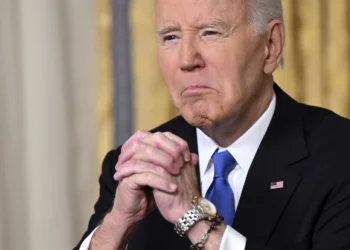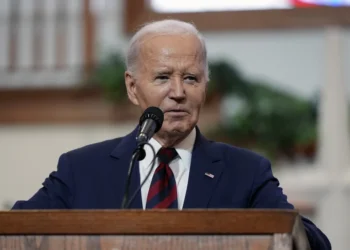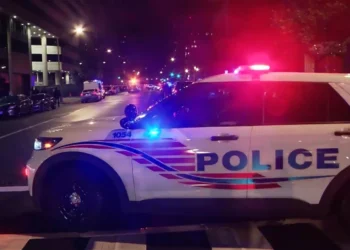One of the most significant infringements on Americans’ liberty is the growing regulatory state. Every year, Washington’s unelected bureaucrats produce reams of regulations that have the force of law. Furthermore, the vast majority of Americans only learn about many of these regulations after being alerted by some authority to having violated one or more of them.
To make matters worse, likely due to the fact that there are so many of these regulations being raised frequently, the government often fails to adequately inform the American public.
An example of this is the case of a professional mountain runner, Michelino Sunseri, who scaled and descended Grand Teton Mountain in Teton National Park in record time. His sponsor, The North Face, celebrated his accomplishment with a post on social media calling it “an impossible dream — come — true.”
All seemed good until the feds stepped in, asserting that Sunseri had accomplished his feat by using a trail in the National Park that park officials had apparently closed. The trouble was that park officials had not bothered to clearly inform the public of this development.
But federal prosecutors deemed Sunseri’s ignorance of the rule change irrelevant, and they charged him with a misdemeanor punishable by up to six months in jail.
Sunseri’s case exposes the problem of the myriad obscure federal regulations that carry criminal penalties, which the vast majority of the American public is unaware of.
Thankfully, Donald Trump has addressed this illiberal and legally untenable issue. A little over a week ago, with little fanfare, Trump signed an executive order titled “Fighting Overcriminalization in Federal Regulations.”
“The United States is drastically overregulated,” Trump’s order notes. “The Code of Federal Regulations contains over 48,000 sections, stretching over 175,000 pages — far more than any citizen can possibly read, let alone fully understand. Worse, many carry potential criminal penalties for violations. The situation has become so dire that no one — likely including those charged with enforcing our criminal laws at the Department of Justice — knows how many separate criminal offenses are contained in the Code of Federal Regulations, with at least one source estimating hundreds of thousands of such crimes. Many of these regulatory crimes are ‘strict liability’ offenses, meaning that citizens need not have a guilty mental state to be convicted of a crime.“
He adds, “The purpose of this order is to ease the regulatory burden on everyday Americans and ensure no American is transformed into a criminal for violating a regulation they have no reason to know exists.”
Trump’s order aims to reform and limit the scope of prosecution of Americans who unwittingly violate these federal regulations. First, the order limits criminal prosecution to cases where individuals knowingly violate a regulation. The application of “strict liability” is to be avoided, and it seeks to prosecute violators of a regulation irrespective of criminal intent.
Second, the order requires federal agencies to publicly identify every regulation they enforce with criminal penalties. This will include the statutory authority for these regulations as well as the mental state required for conviction.
Constitutional scholar and George Washington University Law professor Jonathan Turley recently observed in testimony before Congress just how bad the situation of overregulation has become. “There are an estimated 5,000 federal crimes and hundreds of thousands of regulatory crimes. These federal crimes overlay state crimes, which have also expanded exponentially,” he noted. “This would have been unimaginable for our Founders, who viewed police powers as resting primarily with the states. There are only three specific crimes mentioned in the Constitution: treason, piracy, and counterfeiting. Federal criminal and regulatory authority remained very limited into the early twentieth century.”
The federal regulatory state has expanded well beyond what it was originally intended to police. Turley argues that there are now so many federal regulations on the books that it would likely take artificial intelligence to identify them all. That is a massive problem and yet another reason to support Trump’s DOGE efforts.
The primary trouble lies with Congress having long ago abdicated its regulatory authority to the executive branch. Out of one part cowardice and another part because too many in Washington are beholden to the Wilsonian notion of rule via the expert class, Congress has become a branch of the federal government that does little other than wrangle over passing ever-expanding federal budgets.
Ending the regulatory state can only really come when Congress reasserts its role as the legislative branch. Congress makes law, not the executive. The legislative branch most closely expresses the rule of the people and by the people. Our nation needs to get back to this arrangement. Congressional leaders blaming the president for wielding power that they have abdicated to the executive branch is the height of hypocrisy.

















